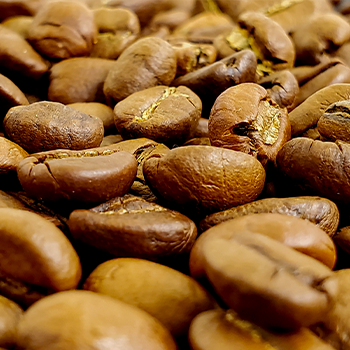I have lost count of how many different pre-workout shakes I’ve tested out over the years, but it must be over a hundred at this stage. As a personal fitness coach, I have been able to test all these products with clients to see which ones provide the best results.
Our team decided to have a dietitian help us research all the data we have collected about supplements and then find those common ingredients from the best products.
We measured muscle fatigue, strength, and recovery times, to come up with the ideal pre-workout ingredient list.
Quick Summary
- The ingredients in pre-workouts to look out for are creatine monohydrate, beta-alanine, caffeine, BCAAs, and L-Citrulline.
- Pre-workouts are supplements taken before a workout to enhance an athlete's performance.
- Creatine monohydrate, a common pre-workout ingredient, can increase strength by 5-10%, leading to faster lean muscle mass production.
- Based on my experience and observations, pre-workout supplements can be a valuable boost for those in intense and regular training, but they are not a magic solution for everyone.
What Pre-Workout Ingredients Should You Look For?

Here are the five most effective ingredients that our pre-workout testing and research have shown.
1. Creatine Monohydrate
Creatine, heavily researched in sports science, is recognized by the International Society of Sports Nutrition for its effectiveness in enhancing athletic performance.
According to the BMC, It’s one substance that can help athletes enhance athletic anaerobic performance as it’s directly involved in boosting your strength during resistance training [1]. In my experience, you can increase strength by 5-10%.
And that will ultimately lead to faster lean muscle mass production.
2. Beta-Alanine
This is another very common ingredient that I think should be in every pre-workout. Studies have shown that it may significantly reduce lactic acid buildup in muscles, which in theory should allow you to push your body further before you feel the burn [2].
My other experience with this is that because you delay the burn and it’s not as bad as normal, it may help relieve muscle soreness the next day.
3. Caffeine

Caffeine awakens you and sharpens focus and motivation during workouts, which is particularly beneficial for intensive training sessions.
According to the National Library of Medicine, the other reason you’ll find it in a pre-workout supplement is that studies have shown a direct link between caffeine and maximum power output [3].
And that should get you closer to achieving your fitness goals.
4. L-Citrulline
This non-essential amino acid is directly tied to nitric oxide levels in the bloodstream. And while the body naturally produces it, a sudden boost could help increase blood flow to muscles [4].
“L-citrulline is a naturally occurring amino acid found in food, such as watermelon. It is also made naturally in the body. The body changes L-citrulline into another amino acid called L-arginine and also to a chemical called nitric oxide.”
- WebMD.com
You’ll often find this in muscle pump supplements, as it can significantly affect how much your muscles swell up during lifting. The added benefit of the extra blood flow is that more oxygen and energy are delivered to help with your performance.
5. BCAAs
Branched-chain amino acids are a set of three essential amino acids that your body cannot produce and, therefore, have to be taken in with food or supplements.
Most people take it as a separate post-workout shake to help synthesize muscle protein. Still, evidence suggests it may help reduce early-onset muscle fatigue, especially during resistance training [5].
Incorporating BCAAs into your supplementation routine can equip your muscles with the building materials to bounce back from rigorous activity.
Optimizing exercise performance and developing lean muscle mass can be facilitated with these valuable amino acids as a tool in your fitness routine.
Related Articles:
These pre-workout supplements are available in diverse forms like capsules, gummies, and ready-to-drink beverages, catering to different preferences and lifestyles. Choose the form that best fits your routine for consistent benefits.
Are There Pre-Workout Ingredients To Be Careful With?

Does Every Athlete Need A Pre-Workout?
No, pre-workouts are more effective at a certain fitness level and may not significantly benefit those with infrequent gym visits.
But, if you spent the last few months pounding the treadmill and lifting weights 2 to 3 times a week, it could be time to get that extra boost to make those trips more effective.
I’d also suggest taking them on your most intense workout days first. Generally speaking, a cardio day probably doesn’t require that kind of strength boost unless you’re specifically training for long-distance endurance sports.
FAQs
Are Pre-workout Supplements Banned?
No, pre-workout supplements are not banned, and they generally contain minerals and amino acids that your body needs. A small boost from a supplement does give your body a performance improvement, but it’s not something that is banned in sports.
Should You Try to Mix Your Own Pre-workout?
No, I wouldn’t recommend that you mix your own pre-workout supplement. It can be difficult to get the right amounts and formula, and buying the individual ingredients can often be a lot more expensive than a ready-to-drink supplement.
References:
- https://jissn.biomedcentral.com/articles/10.1186/s12970-017-0173-z
- https://www.ncbi.nlm.nih.gov/pmc/articles/PMC2887393/
- https://pubmed.ncbi.nlm.nih.gov/22569090/
- https://www.webmd.com/vitamins-and-supplements/l-citrulline-uses-and-risks
- https://www.ncbi.nlm.nih.gov/pmc/articles/PMC5649871/
- https://ladder.sport/pages/beta-alanine-tingle/
- https://www.webmd.com/diet/health-benefits-citrulline#2-4
About The Author
You May Also Like






